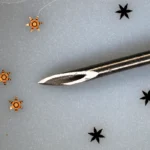Mucus Gels and Innate Lung Defense Seminar with Gregg Duncan
All are welcome to a seminar with guest speaker Gregg Duncan and his presentation on, “Mucus Gels and Innate Lung Defense.” This is a hybrid event. Guests are welcome to come in-person in Hodson Hall 210 on the Johns Hopkins Homewood campus or by Zoom.
Zoom link and passcode: 530803
Mucus is a biological gel within the lung designed to behave like an “escalator” with the ability to capture potentially harmful inhaled materials (e.g. pathogens, particulates) and carry these materials via mucociliary clearance up to the throat to be swallowed and sterilized. A breakdown in lung mucus barrier function can lead to increased infections by respiratory viruses, such as influenza, rhinovirus, and coronaviruses, as they are not effectively removed from the airway. For these seasonal and emerging human viral pathogens, it is important to understand the mechanisms through which viral particles avoid adhesion to the mucus barrier and transport to the underlying epithelium to cause infection. To examine this, we measured influenza A virus and nanoparticle diffusion in mucus from human donors using high-speed fluorescent video microscopy and multiple particle tracking. Through these measurements, we can directly determine binding affinity and mode of adhesion for influenza A and other respiratory viruses in 3D human mucus matrices. MUC5B and MUC5AC are large, gel-forming mucins that assemble to form airway mucus gels. However due to the lack of appropriate models, it is not yet fully understood how MUC5B and MUC5AC individually or synergistically contribute to the biological function of mucus. To understand their unique roles in respiratory health, I will also discuss our studies on the rheological properties and transport function of mucus in human airway tissue cultures genetically engineered to secrete either MUC5B or MUC5AC. These bioengineered models provide key insights on how MUC5B and MUC5AC work in concert to enable host mucosal barrier function providing a highly valuable means to understand their roles in health and disease.
Speaker Bio: Gregg Duncan earned his Ph.D. in chemical engineering under the guidance of Michael Bevan at Johns Hopkins University. He then completed his postdoctoral training at Johns Hopkins School of Medicine in the Center for Nanomedicine directed by Justin Hanes. Dr. Duncan is currently an Assistant Professor in the Fischell Department of Bioengineering at the University of Maryland. Dr. Duncan leads the Respiratory Nano Bioengineering (RnB) lab, which aims to understand airway micro-physiology in health and disease to engineer new therapeutic strategies for obstructive lung diseases such as asthma, chronic obstructive pulmonary disease, and cystic fibrosis. Dr. Duncan is the recipient of several honors and awards including the Burroughs Wellcome Fund Career Award at the Scientific Interface, BMES Rita Schaffer Young Investigator Award, the CMBE Young Innovator Award, and the NSF CAREER Award





